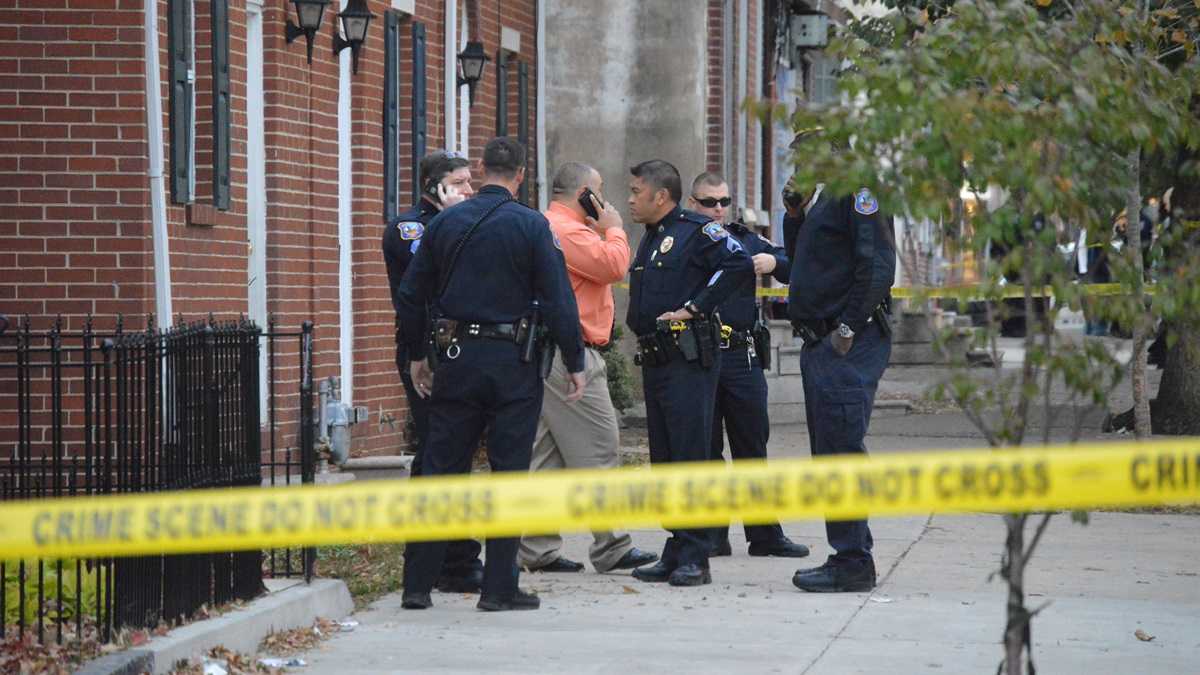Delaware and Wilmington agree to funding guidelines

(File/WHYY)
After a year-long fight between the state of Delaware and the city of Wilmington over police overtime funding, a compromise may soon be made.
Mayor Dennis Williams, D-Wilmington, said the city will accept $200,000 in state funding to finance overtime within its police department and will agree to conditions imposed by the state.
On Wednesday, State Senator and Wilmington Mayoral candidate Robert Marshall announced the funding for 4,000 hours of additional policing in “high-crime” areas during the summer, and called on the city of Wilmington and its police department to accept.
“This is real money for an all-too-real problem and we should be invested in protecting Wilmingtonians,” he said of the attempt to reduce city violence.
In order to receive the funds, however, the city must provide a report by Oct.15 to members of the state’s Capital Improvement Committee detailing how the money is spent.
The city didn’t accept $1.5 million in state funding appropriated last year to cover police overtime and crime analysis aimed at preventing city violence because they couldn’t agree on the conditions.
The mayor and the police department felt the state overstretched its authority by making an apparent threat to take seize control of the department after requiring them to provide deployment data and participate in an assessment of how it was implementing policing recommendations put in place by the Department of Justice’s Violence Reduction Network.
“We can encourage, we can make the money available,” Marshall said. “Explain to me how you reject a million and a half dollars. I mean, it’s unheard of. But it happened, so now we need to move on.”
He said he doesn’t believe the new conditions are as restrictive.
Williams said he’s pleased the state has created a fair compromise, and the police department will accept it.
“This is the sort of support and compromise the city has been waiting for. As I have repeatedly stated to members of the Joint Finance Committee, State Delegation and Attorney General, the city’s primary concern regarding the $1.5 million for foot patrols was the General Assembly’s threat to seize control over the Wilmington Police Department,” he said in an email.
“If that threat was removed the city would’ve accepted the funding and provided the necessary information. It is unfortunate state officials did not remove that threat so we could have reached this resolution sooner. The Wilmington Police Department will accept the $200,000 to deploy more officers in hot spot crime areas, and provide a report by the requested deadline.”
Marshall said he emailed Wilmington Police Chief Bobby Cummings about the offer. The chief wasn’t immediately available for comment to WHYY.
Wilmington City Council President Theo Gregory said he believes the offer is “more than reasonable.” When the $1.5 million funding was offered City Council passed two resolutions asking the money be accepted.
“I think with the violence in the city and the way the city is going, not only in our city but cities all across America, whenever you can get more resources you do your best to get those resources,” Gregory said.
Wilmington residents, businesses and leaders have voiced concerns about increased violence in the city.
Last year there were 151 gun violence incidents in Wilmington with 26 fatalities. So far this year 14 individuals have been killed among 131 shooting incidents. Wilmington’s reputation also has exceeded the state, as actress Jada Pinkett Smith plans to produce a TV show based in Wilmington called “Murder Town, USA.”
Last year Cummings presented a comprehensive strategic public safety plan initiating 111 recommendations offered by the Department of Justice’s Violence Reduction Network. The police department also hired former Philadelphia Police Commissioner Charles Ramsey to run an initiative on community policing in the city.
Marshall and other city and state leaders say they believe additional policing will decrease crime, and Marshall said accepting the $200,000 is a necessary step.
“There were shootings in the city Sunday and Monday—one with a 16-year-old victim—that, thank God, weren’t fatal,” he said. “But we know that violent crime increases right along with the rising temperatures in the summertime.”
During an April city council meeting revolving around public safety, Cummings and the city agreed one of the top issues needed to be addressed is the police department’s overtime expenditures, which the crime commission recommended it analyze.
The department’s overtime spending stood at 111 percent of its budget, which means that overtime spending was about $221,000 over budget with two months remaining in the fiscal year.
Marshall said if he is elected as mayor in November he will work to improve the city’s spending habits.
“I’ve said publicly that if elected mayor I will initiate an executive order within first 90 days that we will do a study about the efficiency and productivity of our Wilmington government,” he said. “I’ve got a gut feeling there may be some waste and inefficiencies we can improve on.”
WHYY is your source for fact-based, in-depth journalism and information. As a nonprofit organization, we rely on financial support from readers like you. Please give today.





